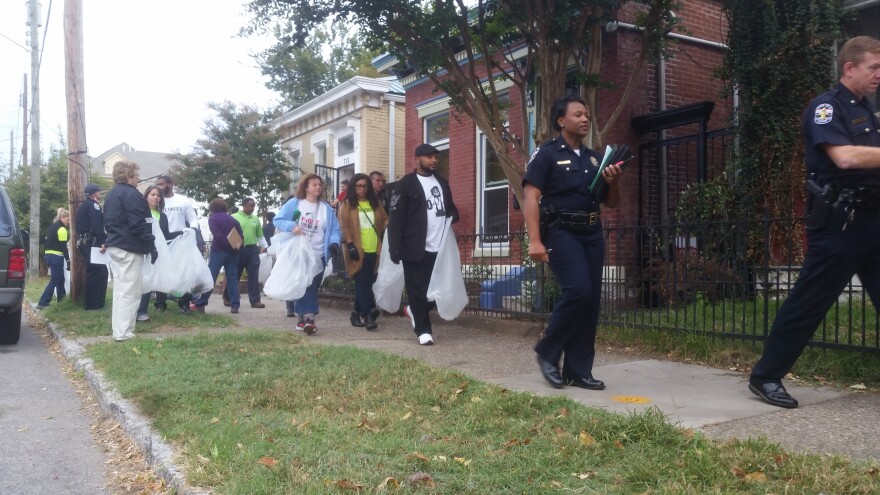Charles Seay leans against the chain link fence outside his Smoketown home, shaking his head at the rutted street beyond the curb.
Pocked and potholed, the block long stretch of Roselane Street in front of his home hasn't been repaved in nearly four decades, Seay said.
He's called the city, he's called his councilman, but to no avail.
"I don't understand it," he said.
The street serves as a rugged reminder for Seay that his Smoketown is a different place than it was some 60 years ago when he first moved to the neighborhood, when he'd go to sleep with the doors unlocked.
"It's been a tremendous change since then," he said.
Smoketown is plagued with poverty and blight. Crime is a burden on residents and police.
The neighborhood ranks near the bottom of Louisville neighborhoods for income level and near the top in the number of residents living in poverty and the amount of vacant housing, according to a 2013 reportfrom the Kentucky State Data Center found.
And a 2014 reportfrom the Center for Health Equity found Smoketown is among the most prolific Louisville neighborhoods for violent crime and homicides.
The condition of the neglected neighborhood takes it toll on residents, Seay said.
Some, he said, have lost respect for themselves, for their property and for each other. This mindset leaves some unconcerned about the state of their community.
Trash and junk litter the streets and sidewalks. Overgrown shrubs encroach on sidewalks.
So, early Friday morning, Seay was delightfully surprised to see a crew of city employees combing the streets, picking up the trash and chatting with residents, all in an effort to improve the neighborhood.
The effort is part of a new city-wide initiative called "Building Our Blocks" that aims to address neighborhood issues with a collaborative approach. Under the program, city officials will use data to determine where city services are most needed and then dispatch crews from public works, codes and regulations, the health department, police and other agencies to the site.
Major Ryan Bates commands the Louisville Metro Police Department's Fourth Division, which includes Smoketown. He's confident the program can bring positive change to troubled areas.
He points to theories of crime suppression like the "broken windows" model, which is a debated idea that police should focus on low-level offenses to prevent bigger crimes from happening.
"Cleaner areas and more presentable areas, for whatever reason, will make people think there is a capable guardian in the area," he said.
The work on Friday in Smoketown followed a clean-up effort in September in Russell, which led to the removal of more than 20,000 pounds of junk and 61 old tires, according to a news release.
And about a dozen more clean-ups are planned for the next year.
For residents, like Seay, the work is certainly welcome. And the attention to Smoketown is needed, he said. But real change, he said, will only come when people regain their hope and their respect for their neighborhood.
"That's the bottom line," he said. "If everyone pitched in, we wouldn't have any problem."







